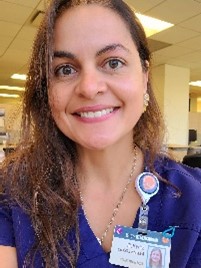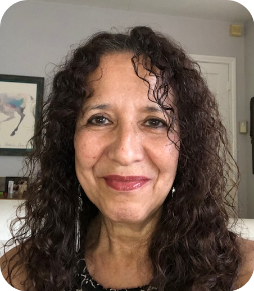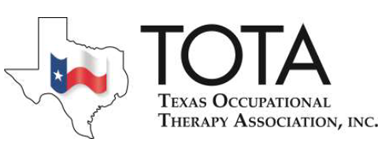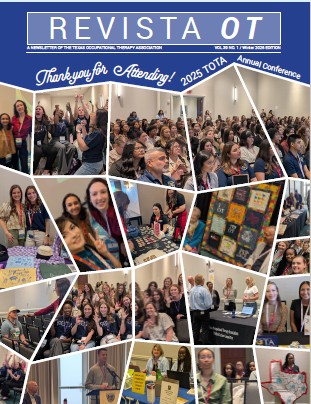|

Sirley Marin
What is your OT history? Where did you go to school? How many years have you practiced? What is/are your current practice area/s?
I am originally from Medellin, Colombia. I moved to the US 11 years ago. I studied Biomedical Engineering at EIA-CES in my hometown. While we were designing a project during my third semester of college, I went to observe at a rehab clinic that treated children with multiple disabilities. Since that day I knew I wanted to serve this population through my profession. All my engineering projects since then were designed to meet needs in rehab engineering, universal design, participation, adaptations and assistive technology. As I got to work more with people with disabilities, I wanted to have the tools to treat clients directly safely and effectively. After a few years of working alongside different rehab professionals, I realized that occupational therapy was the right profession for me. I did my master’s in occupational therapy at Misericordia University in Wilkes-Barre, Pennsylvania; and moved to Houston right after graduating. I have been working at Harris Health System in the neuro outpatient setting since then. It has been over six years now. I treat patients with neurological conditions such as CVA, TBI, SCI, MS, ALS, Huntington’s, and Parkinson’s disease. I am also part of the Seating and Mobility Clinic and I’m passionate about holistic healing including neurocognitive training, self-management of metabolic syndromes, connecting clients in need to community resources, mental, spiritual, and social participation.
How has your heritage influenced your professional OT role?
My Hispanic heritage influences my professional OT role, from therapeutic use of self to being able to culturally relate to a large percentage of my patients who also come from a Hispanic heritage to educating/sharing my culture with my colleagues. I teach rehab students a module on cultural differences that may impact patient’s outcomes. Over 50% of the population we serve at Harris Health System come from Hispanic heritage. A lot of them only speak Spanish. So being able to speak the language facilitates my plan of care. Even my non-Spanish speaking patients try to speak to me some words in Spanish and I love that, and I feel they are knowing and respecting who I am.
What professional or association issues, needs, concerns energize you and why?
As a Hispanic I am energized when I see other Hispanic students passionate about OT. I am part of the TODOS Hispanic OTs in the USA where the main goal is to help reduce barriers for OT practitioners with Hispanic background. I am concerned about us as OT practitioners who are not supporting TOTA and AOTA, as they are the main organizations advocating for our profession locally and nationally, without their advocacy I don’t know where we would be as a profession. There are so many things happening behind the scenes, and they can’t be done without our support.
Which OT practitioner/s do you admire and why?
I personally admire Myra Vasquez-Romero, Rafferty Laredo, Theresa Gregorio-Torres, and Trish Tully. I admire them not only for the amazing work they do with people with neurological conditions here in Houston, but much more for their service to the community outside work hours. Despite years and years of experience you can always find them serving, volunteering, praying, and developing new projects that would benefit those most in need. They inspire me.
What are your current areas of interest or study?
I have several current areas of interest and study, including:
- Mental health/trauma related issues
- Participation in spiritual activities
- Neurocognitive Treatment
- Self-management of metabolic syndromes
- Community resources and participation
- Seating and Mobility
Any thoughts or comments you want to share with your members or colleagues?
Regarding Hispanic heritage month, I would encourage OT practitioners not to make assumptions based on past experiences, and preconceived notions they might have about other countries, culture, and people. The Hispanic culture is large and different. Also I would like to encourage OT practitioners in any setting to include mental and spiritual participation in their daily practice. We are trained to serve patients holistically and from my experience it really makes a difference when we actually do it.

Evangelina Moncayo
What is your OT history? Where did you go to school? How many years have you practiced? What is/are your current practice area/s?
I discovered OT while working with migrant farmworkers’ children, ages 6 wks. to 6 yrs, in Ohio. I was a speech/language pathologist (still am!) working with the Texas Migrant Council out of Laredo, TX - the only mobile migrant Head Start program in the nation. All staff would close the Head Start centers in various cities in South Texas and the Texas Panhandle, pack up the buses and follow the migrant stream into the Midwest states of Ohio, Indiana, Wisconsin, Minnesota and the state of Washington. We would set up our programs there, expanding our age ranges down to 6 wks., up to 6 yrs. We accessed therapy services for the children with special needs in the various communities. It was my first introduction to occupational therapy and I was hooked! I went to OT school at the UTHSC in San Antonio. I have now been practicing OT for 27 years. Time flies when you’re having fun! I love being a SPOT - an SLP and an OT. It’s an invaluable combination. I currently work in the Easter Seals Early Childhood Intervention (ECI) Program in San Antonio. I am NDT trained and like working with children with neuromotor needs. I have extensive experience working with children with feeding challenges and I especially love working with NICU graduates and their families.
How has your heritage influenced your professional OT role?
I’m a bilingual, bicultural, barrio, Mexican-American border girl; first generation! I work with families from different ethnic/ cultural/language/socio-economic backgrounds. My background taught me that even within our same ethnic and language group, each family has their own culture, their own beliefs, traditions and family makeup. This has influenced my professional OT role in that I always want to know how a family views wellness, illness, disability, medical providers, therapists. I want to know if the elders in the family, who are often caring for the children I work with, view these issues in the same way. My culture has taught me the importance of ‘plática’ to start a relationship with the families I work with - a sharing of self and interest in them sharing of themselves before anything else.
What professional or association issues, needs, or concerns energize you and why?
I am proud of TOTA for having an International Committee and its interest in what is going on in the world of OT beyond our borders. I am proud to be the chair of that committee but sad that COVID has put a halt to student and professional international exchange experiences. I am happy that the TOTA Board has grown to reflect a more diverse membership and proud that we now have a Diversity, Equity and Inclusion Committee.
Which OT practitioner/s do you admire and why?
I admire all of my OT colleagues at Easter Seals ECI who have tackled how to continue to provide quality services to our children and families via telehealth and then transitioned back into homes with the utmost care and precautions to keep COVID at bay. I know this is happening across the world but this team is close to my heart.
What are your current areas of interest or study?
I’m always interested in improving my feeding skills and I can’t wait for the world to open up again to international exchanges.
|




